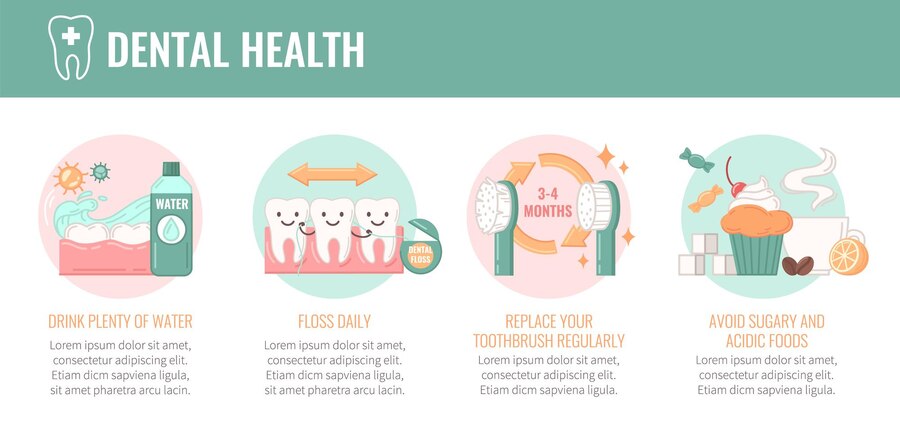Clove oil, derived from the flower buds of the clove tree (Syzygium aromaticum), is renowned for its medicinal properties, particularly in dental care. Its use as a natural remedy for dental pain dates back to ancient times, and modern research supports its efficacy. This article delves into the benefits of clove oil for dental pain relief, the science behind its pain-relieving properties, and practical ways to use it for maintaining oral health.
Benefits of Clove Oil for Dental Pain Relief
1. Analgesic Properties:
-
Clove oil contains eugenol, a compound with potent analgesic (pain-relieving) properties. Eugenol numbs the affected area, providing temporary relief from dental pain, such as toothaches and sore gums.
2. Anti-Inflammatory Effects:
-
Inflammation often accompanies dental pain, exacerbating discomfort. Clove oil’s anti-inflammatory properties help reduce swelling and inflammation, thereby alleviating pain and promoting healing.
3. Antibacterial Activity:
-
Dental pain can be caused by bacterial infections, such as tooth decay or gum disease. Clove oil’s antibacterial properties help combat these infections, reducing pain and preventing further oral health issues.
4. Antifungal and Antiviral Properties:
-
In addition to its antibacterial effects, clove oil also possesses antifungal and antiviral properties. This broad-spectrum antimicrobial activity can help address various oral health problems that contribute to pain and discomfort.
Mechanisms of Action
1. Eugenol:
-
The primary active compound in clove oil, eugenol, is responsible for its analgesic and anti-inflammatory effects. Eugenol works by blocking certain pain receptors and reducing the production of prostaglandins, which are involved in the inflammatory response.
2. Antioxidant Activity:
-
Clove oil’s antioxidant properties help protect oral tissues from oxidative stress and damage, promoting overall oral health and aiding in pain relief.
Using Clove Oil for Dental Pain Relief
1. Direct Application:
-
Apply a small amount of clove oil directly to the affected tooth or gum using a cotton ball or swab. Leave it on for a few minutes to allow the oil to numb the area and reduce pain. Be cautious not to use excessive amounts, as clove oil is potent and can cause irritation if overused.
2. Clove Oil Mouthwash:
-
Dilute a few drops of clove oil in a glass of warm water to create a mouthwash. Swish the mixture around your mouth for a minute or two before spitting it out. This can help reduce inflammation, fight bacteria, and provide overall oral health benefits.
3. Clove Oil and Carrier Oil Mixture:
-
Mix clove oil with a carrier oil, such as coconut or olive oil, to reduce its potency and minimize the risk of irritation. Apply the diluted mixture to the affected area using a cotton swab.
Precautions and Considerations
1. Allergies:
-
Some individuals may be allergic to clove oil. It’s essential to perform a patch test before using it extensively. Apply a small amount to your skin and wait 24 hours to check for any adverse reactions.
2. Concentration:
-
Clove oil is highly concentrated, so it should be used sparingly. Overuse can lead to irritation, burning, or damage to oral tissues. Always follow recommended dosages and consider consulting with a healthcare provider.
3. Not a Substitute for Professional Care:
-
While clove oil can provide temporary relief from dental pain, it is not a substitute for professional dental care. Persistent or severe dental pain should be evaluated and treated by a dentist.
Health Benefits Beyond Pain Relief
1. Fresh Breath:
-
Clove oil’s antimicrobial properties can help reduce bad breath by killing odor-causing bacteria in the mouth.
2. Oral Health Maintenance:
-
Regular use of clove oil, in appropriate amounts, can contribute to overall oral health by preventing infections, reducing inflammation, and promoting healthy gums and teeth.
Clove oil is a powerful natural remedy for dental pain relief, thanks to its analgesic, anti-inflammatory, and antimicrobial properties. By understanding how to use clove oil safely and effectively, individuals can harness its benefits to alleviate dental pain and improve oral health. However, it is essential to use clove oil in moderation and seek professional dental care for persistent or severe pain.




